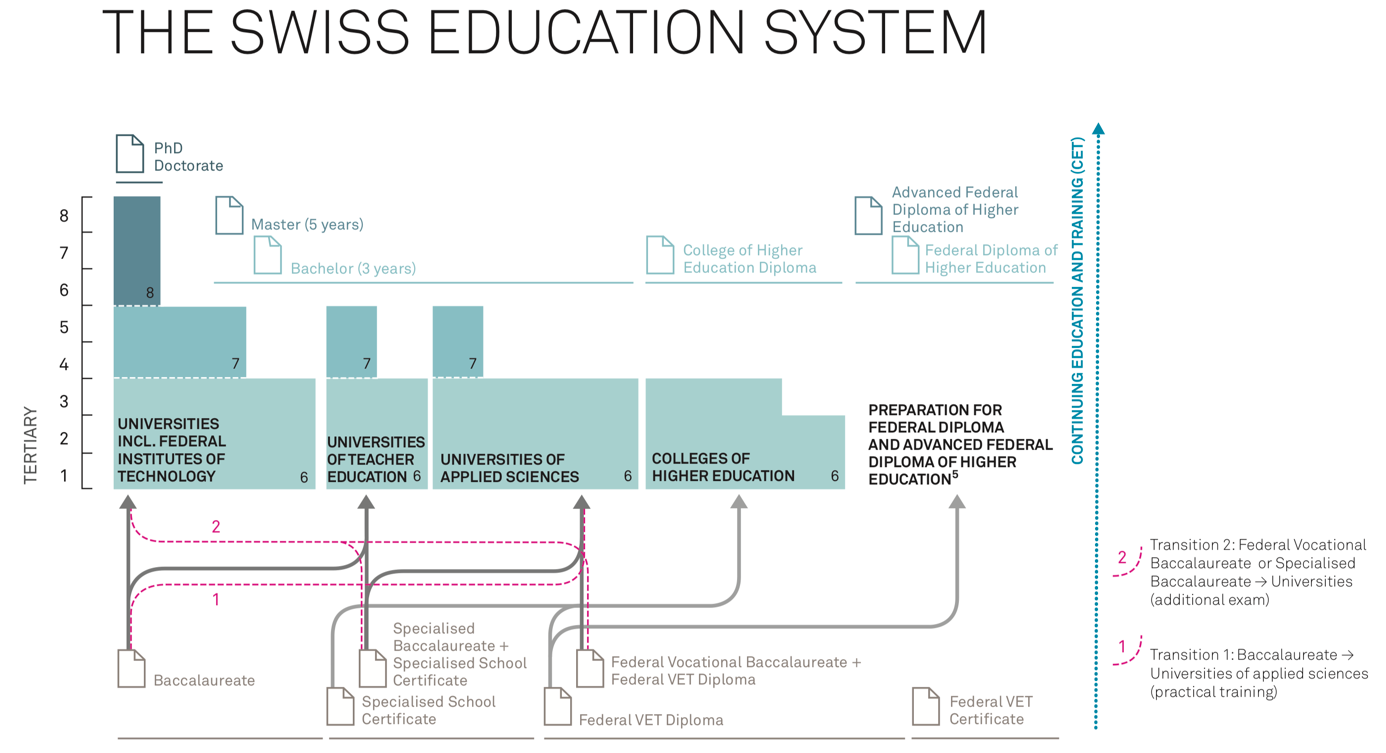Why university rankings are being given poor grades

For internationally oriented students and researchers, university rankings provide an indication of where they should study or do research – in London, Berlin or Zurich? So what’s behind the University of Zurich’s claim that the Times Higher Education (THE) supplement’s annual rankings are not worth the paper they are written on?
The university has joined a growing list of global education heavyweights giving poor marks to the raters. It told SWI swissinfo.ch that it is also “considering whether to continue with other international rankings”, such as QS, Shanghai and the US News and World Report.
Do you want to read our weekly top stories? Subscribe here.
One issue facing universities, along with students and researchers choosing which one to go to, is that each ranking is based on different criteria, ranging from research achievements, number of academic papers, teaching quality and number of Nobel prizes and other awards.
This explains why the ranking of individual universities can vary wildly on different platforms that conducts the ratings.

More
How important are university rankings?
The universityrankings.chExternal link platform, run by the State Secretariat for Education and Research, cautions that rankings operated by media companies favour the gladiatorial cut-and-thrust of competition.
Rankings questioned worldwide
“They favour clear-cut results in the form of league tables, where winners and losers contend with one another in a somewhat dramatic ‘rankings game’, even at the cost of oversimplification or pseudo-accuracy. Large swings in the rankings may even add to this drama,” the website states.
“They may not pose much of a problem for the economic success of the publishing magazine, but they may very well cause major problems for the universities involved.”
The University of Zurich is far from being the only university to turn its back on the established rankings system, which has grown in importance since the Shanghai index first appeared in 2003.
In September last year, Utrecht University turned its back on THE’s ranking, saying “the makers of the rankings use data and methods that are highly questionable”.

More
From ETH to the University of Geneva: understanding Switzerland’s university system
Last year, student union bodies called on universities to boycott “inherently biased” ratings.
The Chinese universities of Nanjing, Renmin and Lanzhou withdrew from international rankings in 2022, saying they were too focused on Western standards, the China Daily newspaper reported.
In 2022, Yale, Harvard and UC Berkeley were among dozens of law and medical schools to denounce the US News and World Report.
Long list of complaints
The list of complaints against various ranking lists is varied, ranging from flawed methodology, elitism, a failure to reflect the social values of universities and even suggestions of payments being accepted to secure a high ranking.
The European University Association devotes an entire section of its websiteExternal link to the problem of rankings. One contributor writes that the financial incentives of achieving a high score “leads some institutions to seek any means – legitimate or illegitimate – to climb the rankings”.
This leads to the question of what can be done about the problem.

More
Are Swiss universities victims of their success?
THE said it “regrets” the University of Zurich’s recent decision but is open to further dialogue and a global debate on rankings. THE added that the University of Zurich’s assessment of its ranking methodology is “based on a fundamental misunderstanding” of how it is compiled. It denies prioritising quantity of research over quality.
Not all ranking systems are the same, according to universityrankings.ch. Besides the commercially operated media rankings, which garner more headlines in the world press, some countries present more reliable ratings that are compiled by educational bodies.
The University of Zurich is one of around 600 global education establishments signed up to the “Coalition for Advancing Research Assessment”, an initiative set up by Science Europe, the European University Association and other organisations.
This initiative has set out a roadmap for fairly appraising the work of researchers and universities that “recognises the diverse outputs, practices and activities that maximise the quality and impact of research”.
Rankings not the whole story
The Swiss Federal Institute of Technology Lausanne (EPFL) believes the current university ranking system has limited value.
“We consider the various rankings that we follow as an interesting ‘external look’ on our activities,” it said in an emailed statement. “They can give us a hint at some parameters that can help us compare to other schools.”
“However, and since some of them do not precisely disclose their methodology, we do not focus that much on their general conclusions. Which means that these rankings do not have any influence on our strategy or management choices.”
The University of Zurich advises students and researchers to do more homework than scrutinising rankings when deciding where to study.
“We recommend that all prospective students compare the contents and structure of study programs, and that interested researchers and potential partner institutions inform themselves about the research programs, academic culture and working conditions. This is far more important than any ranking,” it stated.
The university added that it does “not anticipate any negative impact” on its attractiveness to global research talent as a result of its decision to stop cooperating with THE’s ranking.
Edited by Mark Livingston/ts

In compliance with the JTI standards
More: SWI swissinfo.ch certified by the Journalism Trust Initiative









You can find an overview of ongoing debates with our journalists here . Please join us!
If you want to start a conversation about a topic raised in this article or want to report factual errors, email us at english@swissinfo.ch.